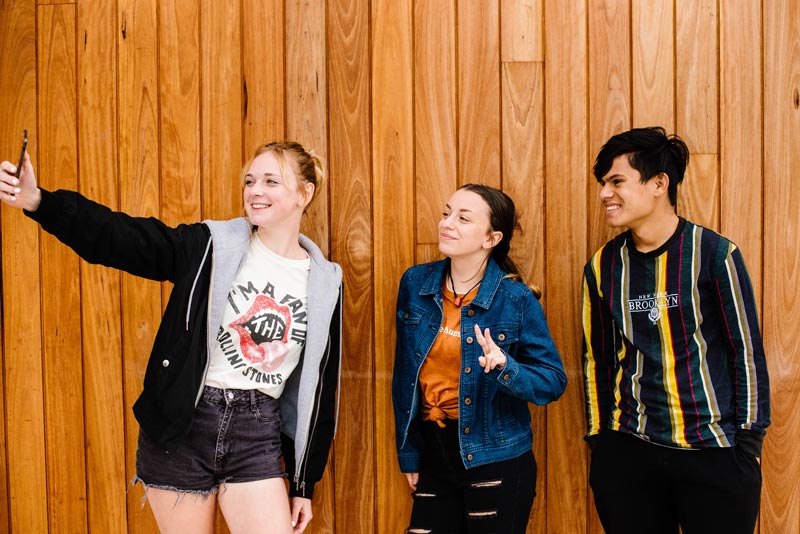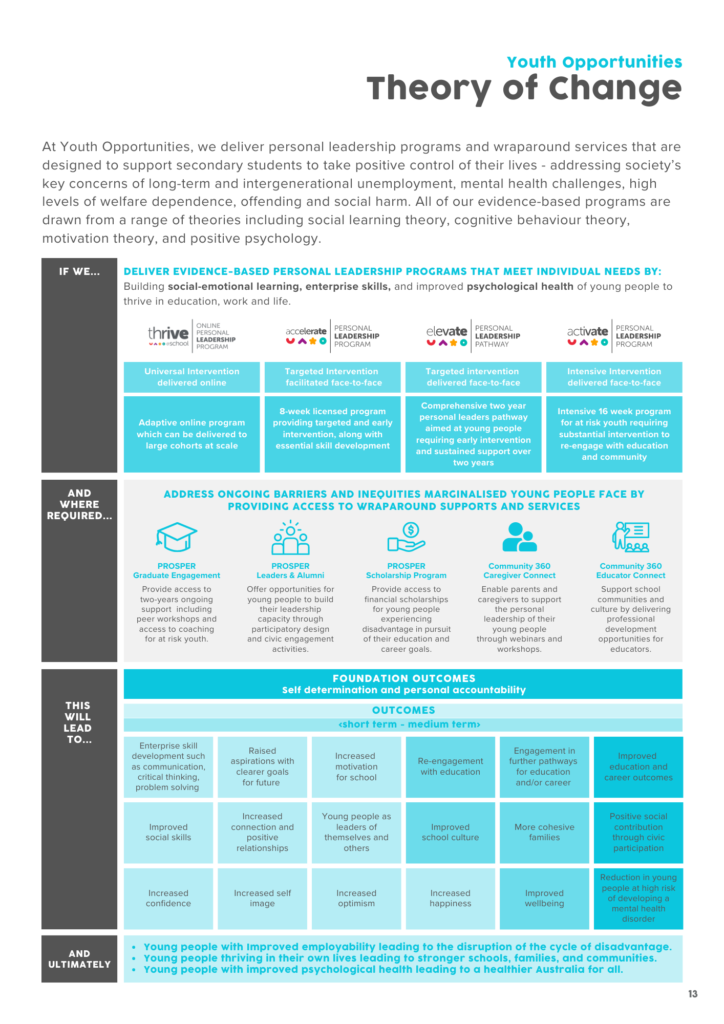Program Framework
Behind all of our personal leadership programs are psychological frameworks.
Our personal leadership programs develop social and emotional capabilities.
With content drawn from a range of theories including social learning theory, cognitive behaviour approaches, goal planning theory and positive psychology.

Personal Leadership means taking positive control and responsibility of your life to direct yourself towards who YOU want to be, and how YOU want to live. It is YOU at YOUR best.
It enables you to decide what success looks like to you, to set goals, to think and communicate positive messages, and to choose growth over security. Personal leadership equips young people with the 21st-century skills needed for their future, and the optimism and resilience to deal with whatever life throws their way.
I use the concepts everyday, and it’s probably the best thing I’ve done in High School
Youth Opportunities Graduate

Decide to be happy
Drawing from Positive Psychology, we know that identifying one’s positive attributes and verbalising them through affirmations improves wellbeing. Using what psychologists call the ‘best possible self’ we improve optimism via a simple visualisation exercise. Acts of Kindness and Gratitude activities heighten one’s sense of fortune and can clinically reduce depression.
For young people, this means large increases in happiness and optimism and a dramatic reduction in the risk of mental health disorders.

Decide to goal plan
Rooted in Goal Planning Theory, from the school of Motivation, this suite of tools helps young people to set specific and challenging goals that are proven to improve performance. Together with appropriate feedback from trainers, this leads to raised aspirations, better organisation skills and a road map for achievement.
For young people, this means measurable improvements in goal planning skills and perseverance to complete goals even when things are difficult.

Decide to send stars
Drawing from Social Learning Theory, we know that the program’s Communication Tools are effective in improving relationships and self-image through the ‘norm of reciprocity’. Students also learn to negotiate win-win conflict resolution solutions via specific tools and techniques.
For young people this means:
• They, and their families, consistently report better relationships.
• They feel more connected and have measurably higher self-esteem.

Decide to grow
Combining Personality Theory, Motivational Theory and Cognitive Behaviour approaches, our trainers help young people to take responsibility for their own outcomes. Breaking the cycle of negative self-belief, and using techniques of graded exposure to increasingly step outside their comfort zone, they start to see their future differently and the world sees them more positively.
For young people this means their confidence and aspirations are consistently raised with more young people wanting to attend higher education.

Theory of Change
Using our suite of measures, and the global evidence base, we continually test the assumptions around the short and long term impact of our programs and services. This is represented in our strategy and which also aligns to our Theory of Change, which articulates how and why we create social change.
Learn more about Personal Leadership Programs
Have a chat with us by sending an email to youth@youthopps.com.au


